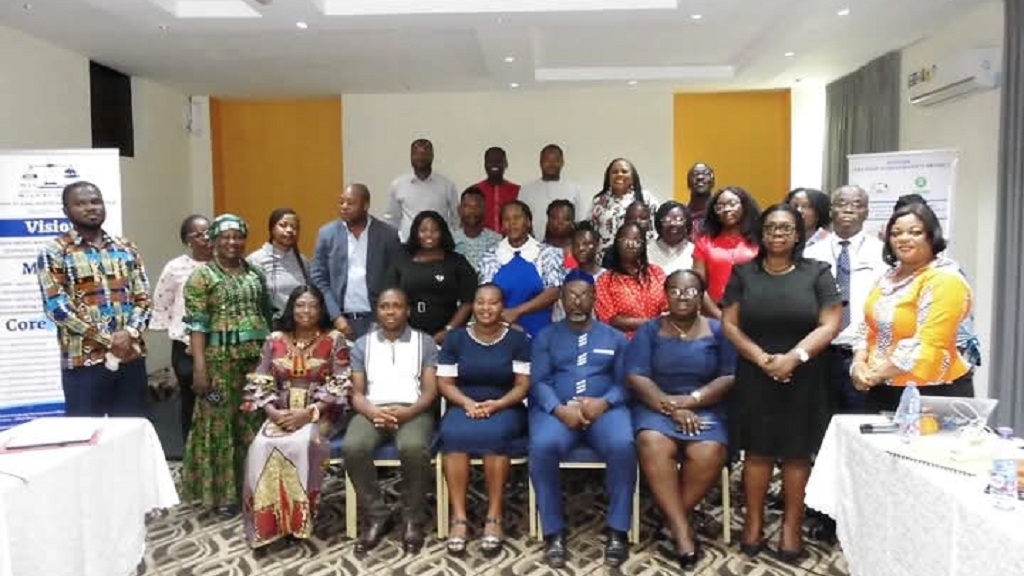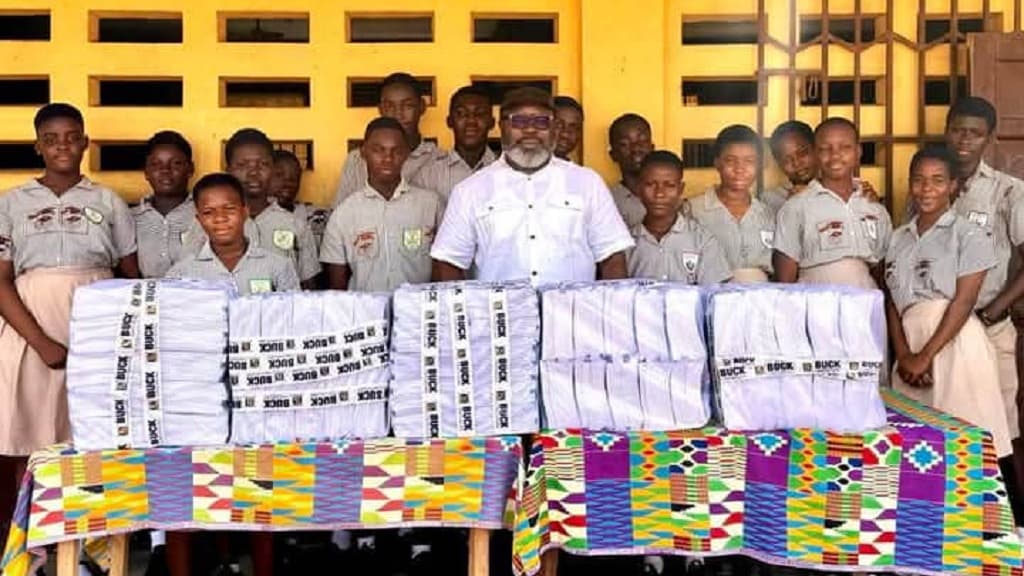Eduwatch, ACET Push For Urgent Reforms To Transform Ghana’s TVET Sector
|  | |
|
Education Tink Tank Africa Education Watch (Eduwatch), in collaboration with the African Centre for Economic Transformation (ACET), has called for reforms in Ghana’s Technical and Vocational Education and Training (TVET) sector to position it as a catalyst for national economic transformation.
This call was made during a validation workshop in Accra on Wednesday, April 30, where key findings from the recently concluded “TVET for Economic Transformation in Ghana” study were presented.
The workshop gathered stakeholders from government, the private sector, civil society, TVET institutions, and development partners to scrutinise the research and chart a path forward.
It revealed significant systemic weaknesses, including inadequate public funding, outdated training equipment, policy implementation gaps, poor digital infrastructure, and limited private sector engagement.
Among the most pressing concerns was the inadequate investment in green skills and competencies needed for the Fourth Industrial Revolution (4IR), highlighting the urgency to align TVET delivery with global workforce trends. The study also exposed gaps in teacher capacity, gender equity, and coordination between formal and informal TVET systems.
Addressing participants at the event, the Eduwatch Executive Director, Kofi Asare emphasised the need for decisive action: “The time to transform Ghana’s TVET system is now. We must shift from rhetoric to action by adequately financing skills development, modernising our infrastructure, and deepening industry partnerships.”
Key recommendations from the workshop include, allocating at least 5% of the national education budget to TVET, accelerating implementation of competency-based training and work-based learning, mainstreaming digital skills and expanding ICT infrastructure, promoting gender-responsive policies and equitable access, building structured partnerships with the private sector and upskilling instructors to deliver green and 4IR-relevant content.
Participants also called for harmonisation between formal and informal training providers and urged the government to create stronger frameworks for inter-agency coordination.
Eduwatch concluded by urging government, private sector actors, and development partners to act swiftly in adopting the recommendations to transform Ghana’s TVET sector into a resilient engine for economic growth and youth employment.
Source: citinewsroom.com | |
|
|
|
Eduwatch Participates In WiLDAF Ghana's Stakeholder Validation Of A Toolkit On SRGBV
|  | |
|
On Tuesday May 6, Eduwatch participated in a stakeholder meeting organized by the Women in Law and Development in Africa (WiLDAF) Ghana, in collaboration with Oxfam in Ghana. The meeting sought to validate a ‘’Developed Toolkit on School Related Gender Based Violence (SRGBV) Incident Response Mechanism’’.
In 2024, WiLDAF Ghana conducted a scoping study to "Review Laws and National Mechanisms on School-Related Gender-Based Violence in Ghana". The study examined existing policies, laws, and institutional frameworks designed to combat SRGBV, assessed their effectiveness, and explored the lived experiences of survivors. A key challenge identified was the lack of an effective implementation strategy for addressing SRGBV within the education sector.
The developed Toolkit was a key recommendation, and in response to the earlier SRGBV scoping study. The Toolkit on SRGBV Incident Response Mechanisms mainly seeks to facilitate effective SRGBV case management at the school level.
Validating the Toolkit, stakeholders indicated that if properly executed, it will significantly curb the challenge of not reporting most SRGBV cases, and encourage children to report. The reports generated through the Toolkit were also considered by stakeholders to have the potential of presenting a compelling case to government to provide more shelters and strengthen SRGBV response mechanisms.
Stakeholders in the meeting included representatives from the Ghana Education Service, Ministry of Gender, Children and Social Protection (MoGCSP), CHRAJ, Ghana Police Service and Civil Society. Eduwatch was represented by its Programmer Officer, Kwasi Nimo Jnr.
© Africa Education Watch
| |
|
|
|
Eduwatch Executive Director Marks Birthday With Books Distribution To Public Basic Schools
|  | |
|
On Monday May 12, as part of an annual birthday ritual, Eduwatch's Executive Director, Kofi Asare, commenced the distribution of 10,000 exercise books to public basic schools. The distribution began at the Madina Estate Basic Schools - his alma mater.
Mr. Asare used the opportunity to recount to the children his humble beginnings as a basic school pupil. He also encouraged them to study hard if they aspire to achieve similar successes.
In a related unfortunate development, the Eduwatch Executive Director called out Management of the Ghana Education Service for their micro-management of schools. The school's teachers declined to take a group photo with him, citing the need for permission from their directors, despite receiving prior notice of the impending donations.
Having spent over two decades in the education civil society space, Kofi Asare could not help but notice the sorry state of the school's Kindergarten, and the deterioration of their furniture. He therefore promised to support with the desks as he had done for some schools in previous years.
We wish Mr. Kofi Asare a Blissful year, and more happy May 11 celebrations to come.
© Africa Education Watch
| |
|
|
|
Eduwatch's Statement On Reforming The Ghana School Feeding Programme
|  | |
|
On May 18, Eduwatch issued a statement on the Ghana School Feeding Programme (GSFP). The statement detailed key observations from our monitoring, and made recommendations to the Ministry of Gender, Children and Social Protection (MoGCSP), aimed at improving Programme efficiency with positive reforms.
Among others, Eduwatch recommends that the MoGCSP convenes a national forum to elicit stakeholder opinions and seek relevant buy-in on strategies for programme reform and improvement, while liaising with the Audit Service to audit the current beneficiary data under the GSFP.
The full statement is available via the link below:
https://africaeducationwatch.org/publication/statement-on-reforming-the-ghana-school-feeding-programme
© Africa Education Watch
| |
|
|
|
Eduwatch Holds A Young People's Forum On The National Apprenticeship Programme
|  | |
|
On Tuesday May 20, with support from Oxfam and in partnership with FOSDA, Africa Education Watch (Eduwatch) convened a Young People’s Forum to gather insights from youth and other key stakeholders on how to make government's National Apprenticeship Programme (NAP) more inclusive, Green responsive and 4th Industrial Revolution-relevant.
Speaking at the forum, the CEO of the National Youth Authority, Osman Ayariga Esq., outlined the ambitious goal of the NAP to formalize Ghana’s informal apprenticeship sector and create 500,000 jobs, with a focus on market-led training, certification, and digital support.
In a presentation by Eduwatch’s Executive Director, Kofi Asare on “Rethinking Apprenticeships for an Inclusive, Green and Digital Ghana,” he emphasized the need to ensure Green responsiveness of the training modules in response to the emerging Green economy, while calling for inclusion and digital skills integration to align training with the future of work.
Making their inputs after the presentations, the participants, majority of whom were young people, among others recommended the following:
* A Green Skills Innovation Hub and mandatory Green training modules;
* Integration of financial literacy, digital literacy, entrepreneurship, and ethical leadership into training;
* Shorter duration of apprenticeships, focusing on competency-based training;
* Increased awareness and post-apprenticeship tracer studies; and
* Pre-training for Master Craft Persons.
A Communiqué encompassing recommendations from the Forum will be presented to the Ministry of Youth Development and Empowerment, and the National Youth Authority.
The Forum was held at the WACCI Auditorium inside the University of Ghana campus, and saw participants from Young Apprentices, Master Craft Persons, National and Regional Youth Groups and Networks, as well Youth-oriented Civil Society Organizations.
© Africa Education Watch
| |
|
|
|
Eduwatch Calls For Legal Backing Of National Apprenticeship Programme
|  | |
|
Africa Education Watch (Eduwatch) has called for the legalisation of the National Apprenticeship Programme to ensure its continuity and prevent future governments from abandoning it.
This call was made during a young people’s forum on Thursday, May 22, which seeks to address youth unemployment and close the skills gap.
EDUWATCH believes legal backing will help ensure proper funding, monitoring, and results.
In an interview with the Executive Director of EDUWATCH, Kofi Asare, he underscored the failure of numerous apprenticeship programmes in the past due to a lack of support and strong policy to influence their sustainability.
“One challenge has to do with sustainability. It’s always been a struggle. We’ve seen a tendency to do a legal and policy framework. If they remain in conventions, they will not be sustainable. But if we put them into law and then also develop different budgets to finance them consistently, then we have a structured model as well.
“We must institutionalise apprenticeship programmes. And we must do so at the law, policy, and also at the budget level, so that consistently we have funding, we can monitor progress, and also we have knowledge to guide competition”.
Organised by Eduwatch with support from Oxfam and FOSDA, the forum focused on making apprenticeships more inclusive, environmentally sustainable, and digitally forward.
Kofi Asare, highlighted critical challenges within Ghana’s apprenticeship system.
“Youth unemployment stands at 14.7%, and our current apprenticeship models remain disconnected from the digital and green sectors,” he stated.
The forum highlighted that only 20% of TVET students feel digitally ready, and a mere 25.6% are aware of green skills despite growing labour market demands in sectors like solar energy, sustainable agriculture, and recycling.
In terms of inclusivity, statistics show that 74% of TVET enrolments are male, revealing a persistent gender gap. Participants discussed the need for disability-responsive training, gender-neutral campaigns, and accessibility improvements in training centres.
Young attendees also proposed forward-thinking solutions, such as integrating digital marketing, AI, and robotics into trade training.
The association also urged the youth to contribute ideas for a reimagined apprenticeship framework.
Source: citinewsroom.com
| |
|
|
|
|